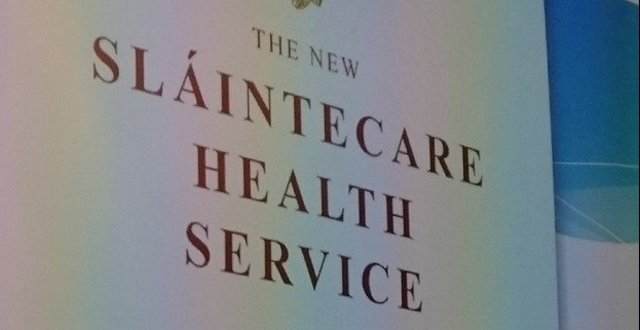
Perhaps the defining moment of the Claire Byrne Live health debate on 20 January came at the end of the programme when Fianna Fáil’s health spokesperson Mr Stephen Donnelly was repeatedly told that many of his party’s healthcare proposals were in the Sláintecare Report. The sight of the Social Democrats co-leader Ms Róisín Shortall, egged on by outgoing Minister for Health Simon Harris, showing Mr Donnelly the report as if he never saw it before to laughter from the other guests and studio audience was as close to panto as a serious debate on the future of our healthcare services is going to get.
The point Mr Donnelly was attempting to make (and which he reiterates in our coverage of the upcoming general election in this issue of the Medical Independent) is that while Fianna Fáil supports Sláintecare, the party also believes emergency short-term action is required given the continued problems of hospital overcrowding and long waiting lists.
During
the debate, it was implied by the other speakers, primarily Minister Harris,
that Fianna Fáil was being disingenuous by rebranding Sláintecare proposals as
their own or as something new.
The
Minister for Health, at the same time, has been accused of both hiding behind
Sláintecare to deflect from the health service’s current problems and also of
not rolling out the strategy quickly enough.
Which
all goes to show that despite the Sláintecare strategy gaining cross-party
approval, it has not taken the politics out of healthcare. This is only natural
when there is a general election to be won. It also highlights the difficulties
parties face in differentiating themselves on a policy front when there is a
long-term strategy which they have all agreed to.
Fine Gael’s commitment to Sláintecare is probably
easiest to judge since they have been responsible for the initial
implementation. Critics pointed to delays in rolling out the more ambitious
elements of the plan, such as universal entitlement to free GP care and the
removal of private practice from public hospitals, as evidence of Fine Gael’s
lukewarm attitude to the strategy. However, the recent announcements on the
expansion of free GP care to under-13s and proposed Sláintecare contracts for
consultants following the publication of the de Buitléir report show
Sláintecare is not being ignored by the Government, even if cynics may point
out both were declared on the cusp of a general election. It should also be
stated that the health service is currently nowhere close to achieving the
waiting list targets in Sláintecare that no person should wait more than 12
weeks for an inpatient procedure, 10 weeks for an outpatient appointment, and
10 days for a diagnostic test.
But
the cynics could concede it is notable that all the parties, both on the right
and left, are committed to the same long-term plan to create a universal health
system in Ireland. Such agreement is no small achievement, even if question
marks remain over implementation.
As
Minister Harris told this newspaper: “I don’t think we have ever had a general
election before where there is such a consensus” around healthcare.
Election
promises are made to be broken. Fine Gael’s pledge to introduce a universal
health insurance system in 2011 is but one recent example. But at least there
is now a roadmap for the health service to help hold whichever parties are
successful on 8 February to account. Opposition parties, as well as the media,
healthcare professionals and patient groups will have a duty to put pressure on
the Government so that the strategy is used to drive real change and make sure
Sláintecare does not become a mythical healthcare paradise never to be
realised.





Leave a Reply
You must be logged in to post a comment.